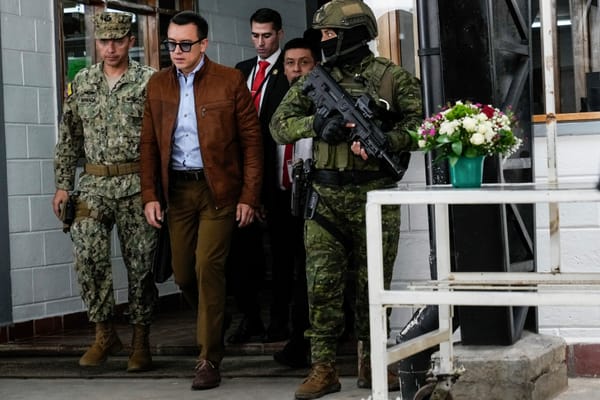On Sunday, Ecuadorian voters overwhelmingly approved nine ballot measures that will strengthen the government’s hand in security matters. The referendum took place amid an ongoing crackdown against the country’s violent drug gangs, as well as continued diplomatic fallout from the April 5 raid of the Mexican embassy by Ecuadorian security forces. In recent years, the once peaceful Andean nation has become one of the most dangerous countries in the Americas, with a homicide rate of around 45 per 100,000. The political future of Ecuador’s young president, Daniel Noboa, who took office late last year, hinge on whether he can stem the tide of criminal violence.
“Ecuador is now a test case of whether the Bukele model can be exported.”
Noboa’s administration has gone to great lengths to emulate the methods of El Salvador’s Nayib Bukele. This is hardly surprising: The Salvadoran leader’s victory over the gangs that once terrorized his country has made him one of the world’s most popular leaders. There is more at stake here, therefore, than Noboa’s prospects in next year’s presidential contest. Ecuador is now a test case of whether the Bukele model can be exported.
